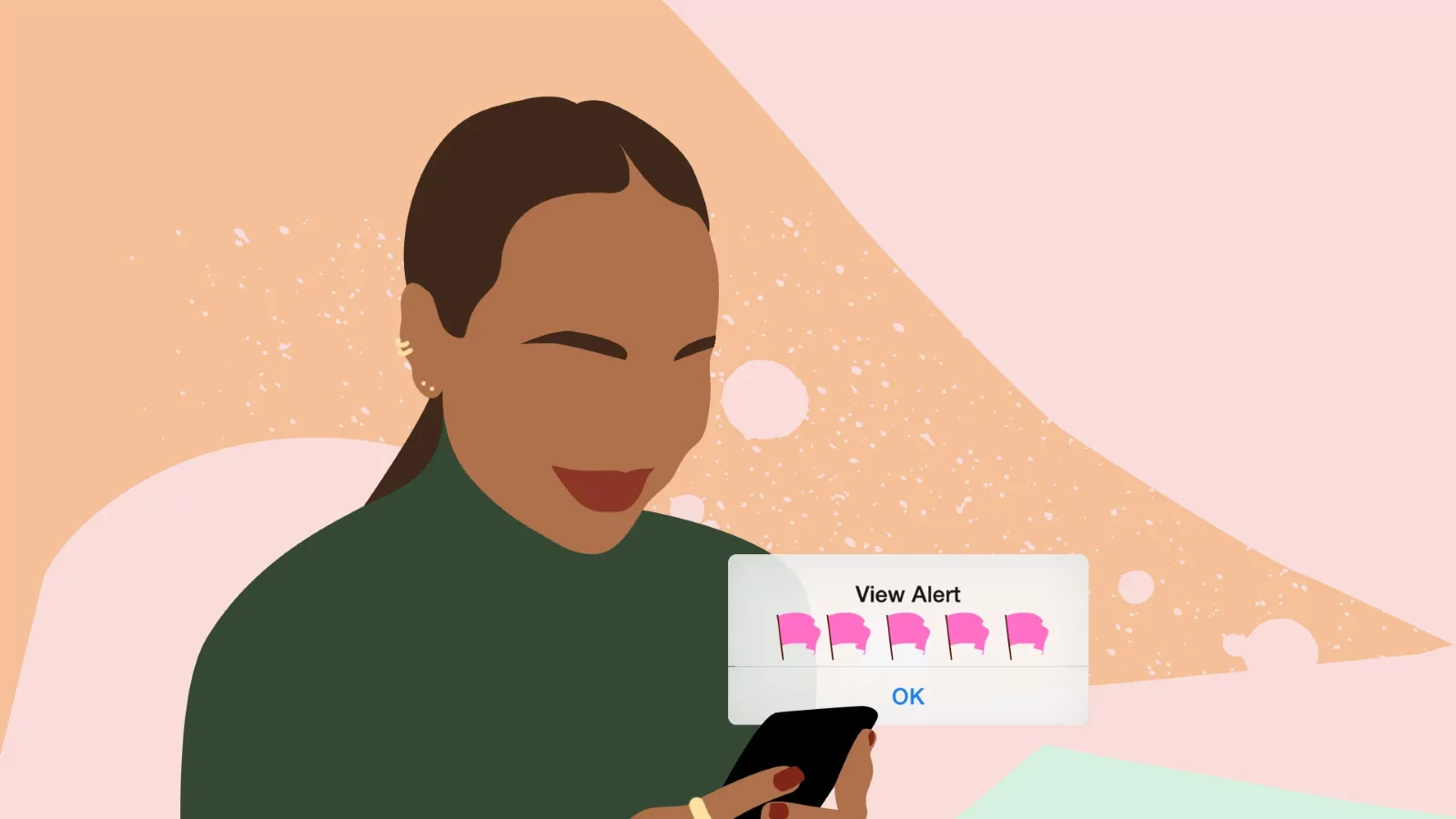When it comes to dating and relationships, people frequently discuss “red flags” – warning indicators that something isn’t right. However, there is another category: “pink flags.” These are subtle issues that may not appear to be serious at first but may become so over time. Relationship experts advise paying attention to these pink flags as possibilities for personal and family growth.
What is a Pink Flag exactly?
“Pink flags serve as subtle indicators that there might be compatibility issues in a relationship,” said Damona Hoffman, an OkCupid dating counsellor and host of “The Dates & Mates Podcast”, to the HuffPost.
Pink flags are less serious than red flags, which often indicate substantial compatibility and behavioural issues. However, resolving these minor concerns early on is critical, as failing to do so may result in more serious complications.
Hoffman described pink flags as having the ability to be readily disregarded or rationalised. She emphasised the danger of dismissing these warning indicators until they become more major red flags. On the other hand, she warned against turning pink flags into dealbreakers too quickly, emphasising that what appears to be a serious issue may be a subtle difference that may be worked out in the relationship.
Read More: https://fiftyshadesofgay.co.in/indias-first-gay-prince/
Here are a few pink flags to look out for.
1. Lack of Arguments:
Disagreements are an expected feature of any relationship. If you never argue, you may be flying a pink flag. Healthy disputes promote personal development and a better understanding of one another. Don’t avoid difficult conversations; they’re opportunities to improve your bond.

2. Different Ways to Express Affection:
Love can be expressed in a variety of ways. It could be a pink flag if you and your partner have diverse ways of demonstrating affection. Openly discuss your preferences to establish common ground. Understanding each other’s “love languages” from the start ensures that both parties feel valued and appreciated.
Talk nerdy to me… with Love Games! Click here start the conversation now!
3. The Feeling of Hiding Something:
In a partnership, openness is essential. It’s a red sign if you suspect your partner is hiding information. Address your problems without making any allegations. Honest chats can make you both feel more confident and connected by clearing the air.
4. Problems with Sexual Compatibility:
A healthy partnership requires sexual compatibility. It could be a pink flag if there are ongoing difficulties. Determine whether the difficulties are the result of newness or crucial incompatibility. To reach a satisfying middle ground, communicate openly about your wants and preferences.

5. Inconsistency or lack of dependability:
The cornerstone of trust is consistency. It’s a red flag if your partner’s activities are inconsistent. Instead of leaping to judgements, engage in an open dialogue. Understand their point of view and talk about how you can help each other through life’s problems.
Handmade Hearts, Handpicked Pride! Click to add a splash of colour to your collection with these cute bracelet.
Read More: LIC says, “Same-sex partner nomination for insurance policy? Completely LEGAL.”
6. Distractions from Technology:
Technology can have an impact on relationships in today’s digital world. Constant diversions could be a red flag. Discuss how you use technology and how you set boundaries. Ensure that your moments together are not overshadowed by screens, resulting in a stronger bond.

7. Avoiding Relationship Definition:
Ambiguity over the status of the relationship can be a red sign. Communicate frankly if your partner avoids addressing the future or defining your relationship. Understanding each other’s expectations is essential for a healthy partnership.
8. Emotional Safety is jeopardised:
A healthy partnership is built on emotional safety. If actions jeopardise this safety, it’s a red signal. Check in on a regular basis and address any issues that arise. Make sure you both feel appreciated, listened, and encouraged in your personal development.
Hockey meets heart in ‘The Long Game’. Click to download and get swept away in this gay sports romance.
9. History of Betrayal:
Past experiences shape individuals, but a history of betrayal may raise concerns. Acknowledge your partner’s honesty about their past, but stay cautious. Time will reveal if these are isolated incidents or potential patterns that need attention.
Read More: Indian Doctor Plans World’s First Womb Transplant to Allow Transwoman Carry a Baby
10. Negative Changes in the Relationship:
Relationships evolve, but drastic changes may be a pink flag. If intentionality wanes or physical intimacy shifts noticeably, it’s time for a conversation. Discuss the transitions openly to understand each other’s needs and expectations, preventing further strain.



